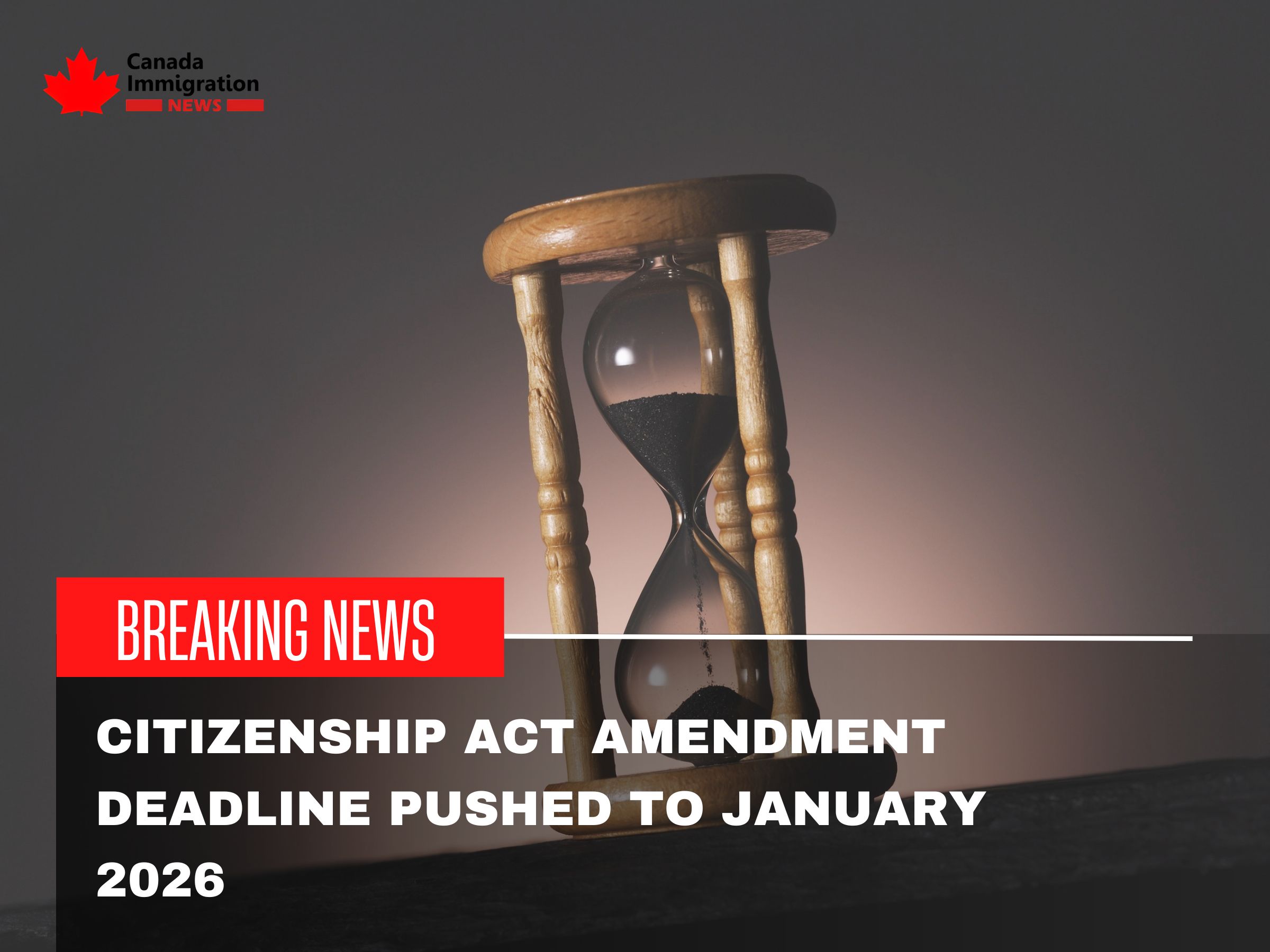By admin
Citizenship Act amendment deadline pushed to January 2026
Canada’s federal government will not meet its previous deadline to update the Citizenship Act, as the Ontario Superior Court of Justice has granted another extension for the passage of Bill C-3. The bill aims to remove the First-Generation Limit (FGL) on citizenship, a provision ruled unconstitutional by the court in 2023.
The deadline, originally set for 20 November 2025, has now been pushed to 20 January 2026. Once enacted, Bill C-3 would expand the ability of Canadians born abroad to pass on citizenship to their children born outside the country.
Bill C-3 Could Become Law Before the New Deadline
Despite the extension, there is a possibility that Bill C-3 will receive Royal Assent before January 2026. In her decision, Justice Akbarali noted that the government has made “significant progress” on the legislation and acknowledged a “reasonable expectation” that it may come into effect before the year ends.
To date, Bill C-3 has passed three readings in the House of Commons and two in the Senate. The bill is currently under review by the Standing Committee on Social Affairs, Science and Technology (SOCI), which may suggest amendments. If no additional changes are made and both chambers approve the final version, the bill will proceed to Royal Assent and become law.
Interim Measures Remain in Effect
While the government works toward passing Bill C-3, interim measures introduced in March 2025 will remain in place. These measures allow individuals affected by the FGL to apply for citizenship through a discretionary grant. Eligible groups include:
- Individuals born or adopted before December 19, 2023 who are restricted by the FGL
- Those born or adopted on or after December 19, 2023 whose Canadian parent meets the substantial connection requirement
- Certain people born before April 1, 1949 affected by the FGL
- Individuals who lost citizenship under previous retention rules (former section 8 of the Citizenship Act)
Applicants can request a citizenship certificate as proof of citizenship, with IRCC reviewing each case under the temporary guidelines. Urgent processing remains available. These interim measures will end once Bill C-3 receives Royal Assent.
A History of Extensions
This new extension marks the fourth time the federal government has missed its deadline to reform the Citizenship Act. However, unlike previous requests, the government shortened its own proposed timeline. While officials initially sought an extension until April 22, 2026, they later revised the date to January 20, 2026 following discussions with the court.
Potential Impact of Bill C-3
If implemented, Bill C-3 would allow citizenship by descent to be passed through multiple generations, as long as the substantial connection test is met. During a recent SOCI committee meeting, Immigration Minister Diab said the government expects citizenship applications under the new legislation to reach “tens of thousands over time,” with most applicants likely to be children.
Background on Bill C-3
The federal government introduced Bill C-3 on June 5, 2025, following the court’s ruling that the First-Generation Limit violated mobility rights and created unequal classes of citizens. A previous bill, C-71, attempted to address the issue but expired when Parliament was prorogued in March 2025. Bill C-3 was introduced as its replacement to ensure long-term legislative clarity.
